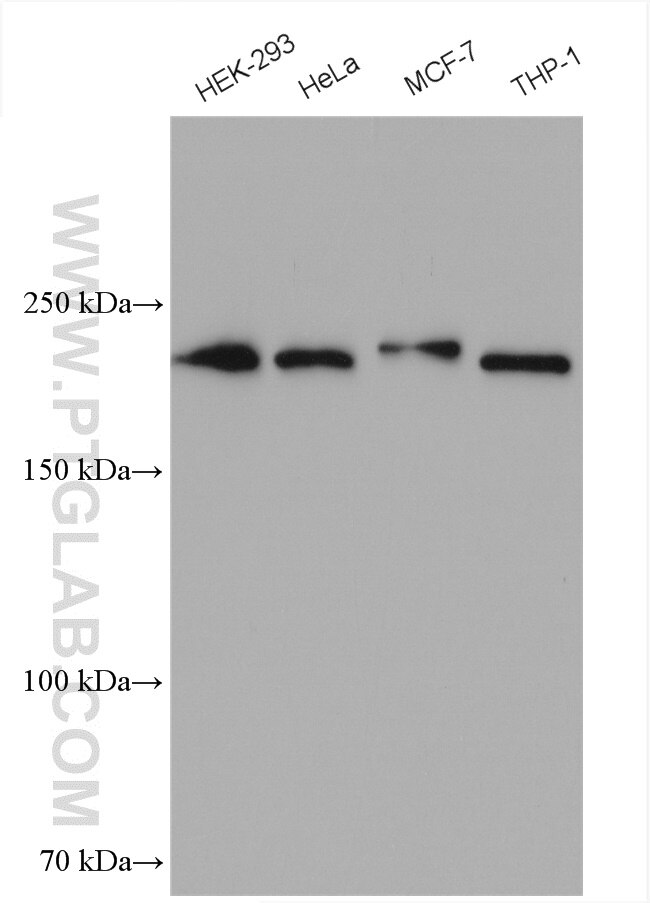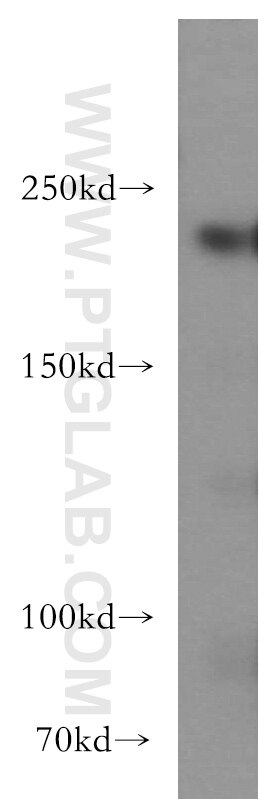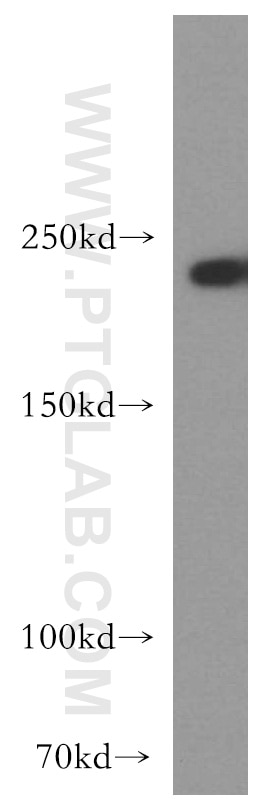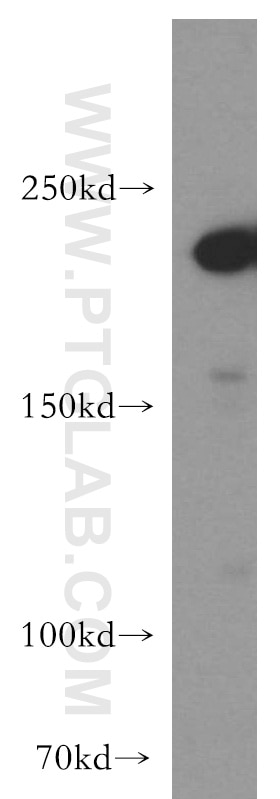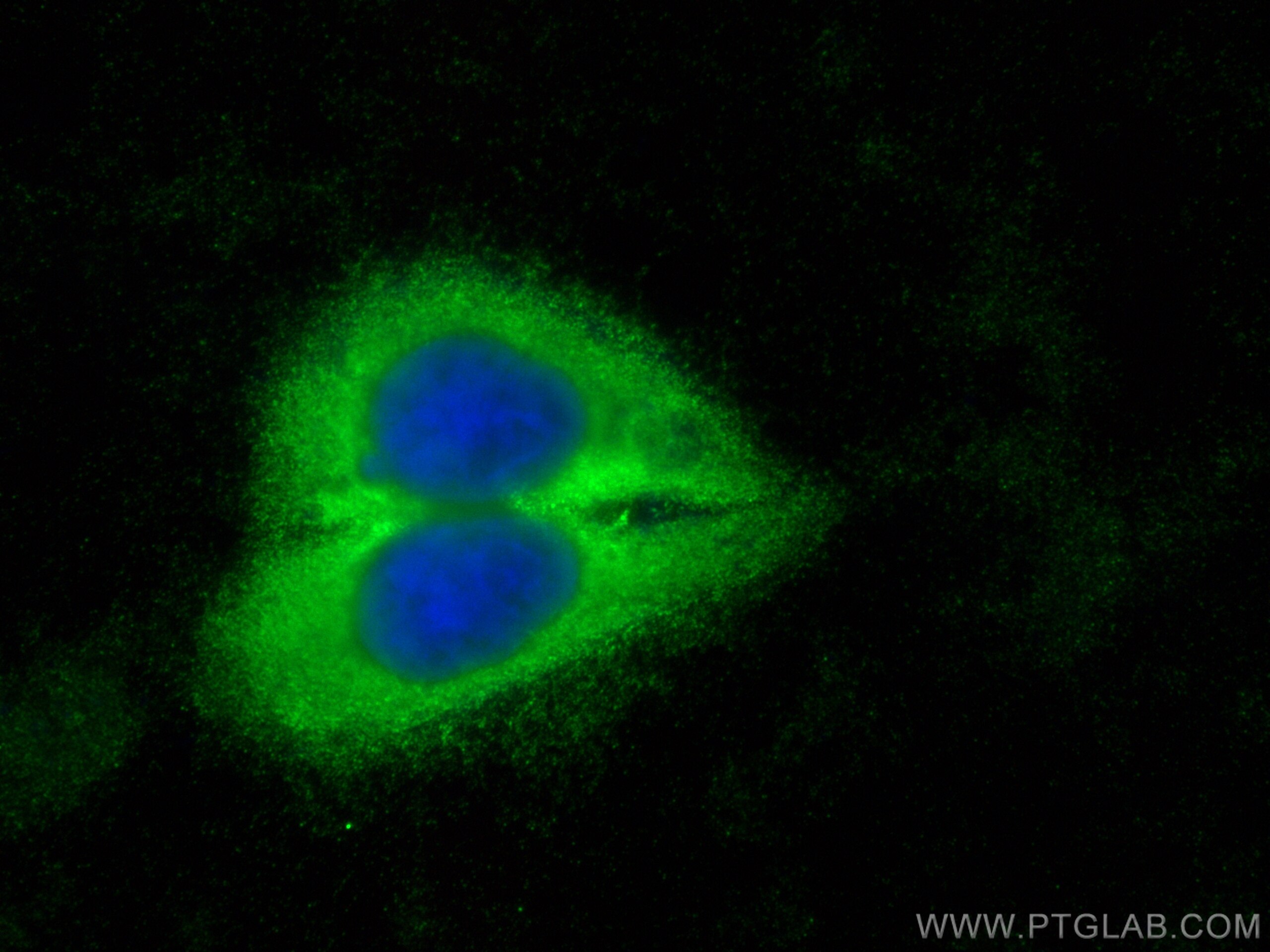Anticorps Polyclonal de lapin anti-SLK
SLK Polyclonal Antibody for WB, IF/ICC, ELISA
Hôte / Isotype
Lapin / IgG
Réactivité testée
Humain, souris
Applications
WB, IF/ICC, ELISA
Conjugaison
Non conjugué
N° de cat : 19743-1-AP
Synonymes
Galerie de données de validation
Applications testées
| Résultats positifs en WB | cellules HEK-293, cellules HeLa, cellules MCF-7, cellules THP-1, tissu cérébral humain, tissu hépatique de souris |
| Résultats positifs en IF/ICC | cellules HepG2, |
Dilution recommandée
| Application | Dilution |
|---|---|
| Western Blot (WB) | WB : 1:500-1:3000 |
| Immunofluorescence (IF)/ICC | IF/ICC : 1:50-1:500 |
| It is recommended that this reagent should be titrated in each testing system to obtain optimal results. | |
| Sample-dependent, check data in validation data gallery | |
Applications publiées
| WB | See 1 publications below |
Informations sur le produit
19743-1-AP cible SLK dans les applications de WB, IF/ICC, ELISA et montre une réactivité avec des échantillons Humain, souris
| Réactivité | Humain, souris |
| Réactivité citée | Humain |
| Hôte / Isotype | Lapin / IgG |
| Clonalité | Polyclonal |
| Type | Anticorps |
| Immunogène | Peptide |
| Nom complet | STE20-like kinase (yeast) |
| Masse moléculaire calculée | 143 kDa |
| Poids moléculaire observé | 143-160 kDa, 210-220 kDa |
| Numéro d’acquisition GenBank | NM_014720 |
| Symbole du gène | SLK |
| Identification du gène (NCBI) | 9748 |
| Conjugaison | Non conjugué |
| Forme | Liquide |
| Méthode de purification | Purification par affinité contre l'antigène |
| Tampon de stockage | PBS with 0.02% sodium azide and 50% glycerol |
| Conditions de stockage | Stocker à -20°C. Stable pendant un an après l'expédition. L'aliquotage n'est pas nécessaire pour le stockage à -20oC Les 20ul contiennent 0,1% de BSA. |
Informations générales
SLK, also named as KIAA0204 and STK2, belongs to the protein kinase superfamily, STE Ser/Thr protein kinase family and STE20 subfamily. SLK plays an important role in cell proliferation and cytoskeletal remodeling. In fibroblasts, SLK has been shown to respond to FAK/Src signaling and regulate focal adhesion turnover through Paxillin phosphorylation. Full-length SLK (~220 kDa) has also been shown to be essential for embryonic development. In myoblasts, the overexpression of a dominant negative SLK is sufficient to block myoblast fusion. (PMID: 28153048, PMID: 25882817, PMID: 23815977)
Protocole
| Product Specific Protocols | |
|---|---|
| WB protocol for SLK antibody 19743-1-AP | Download protocol |
| IF protocol for SLK antibody 19743-1-AP | Download protocol |
| Standard Protocols | |
|---|---|
| Click here to view our Standard Protocols |
